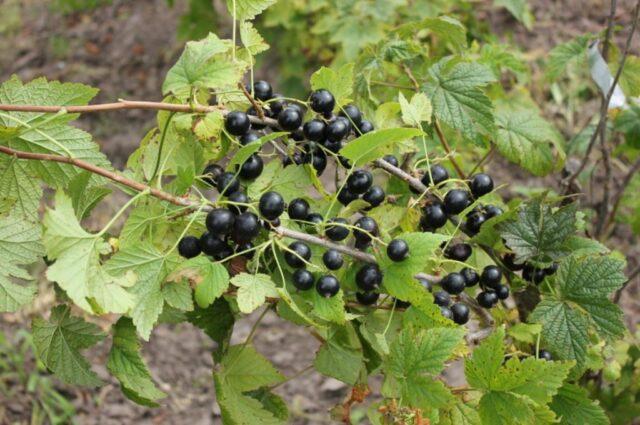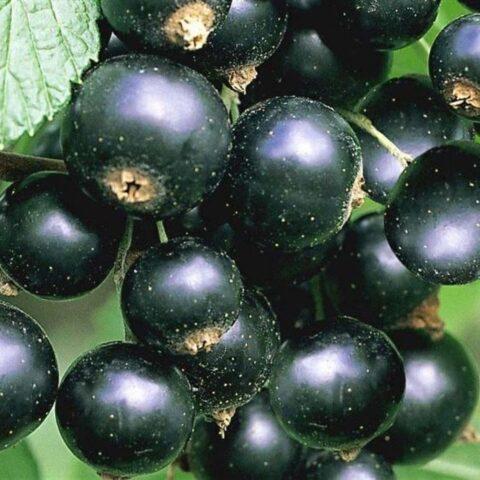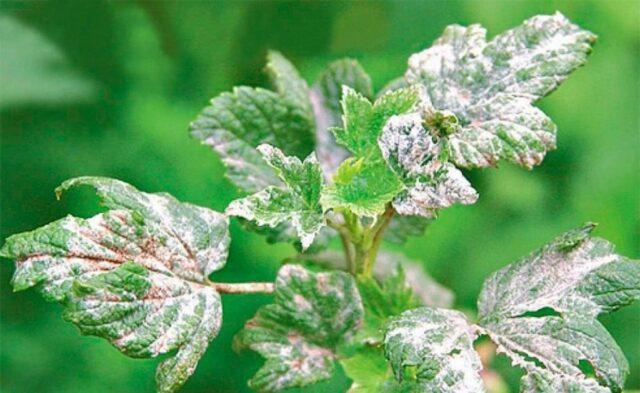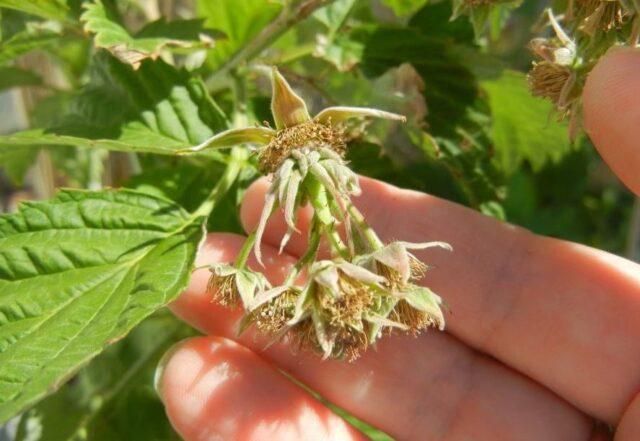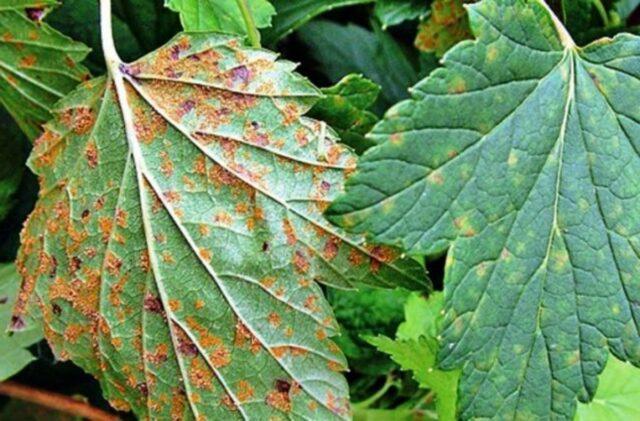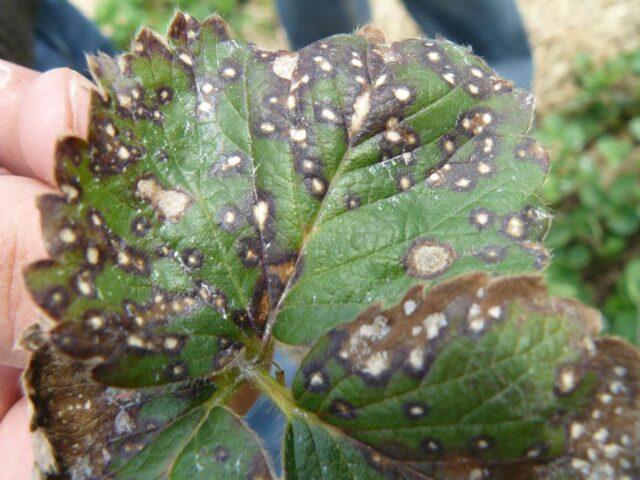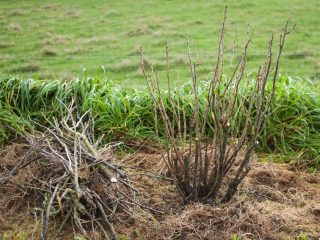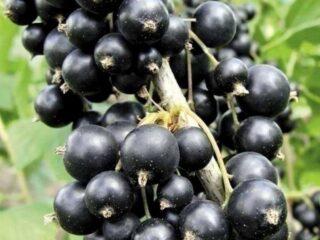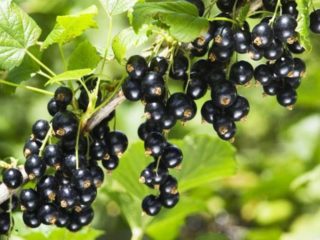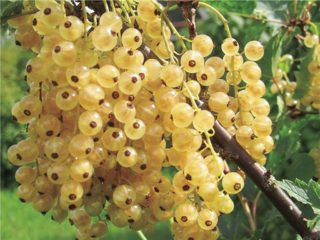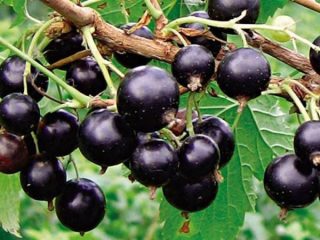Content
Black currant Myth is a relatively new variety of domestic selection with high characteristics. The saturation of berries with vitamins and microelements, the versatility of their use attracts gardeners. The popularity of the variety is growing every year, especially since it is not capricious and unpretentious in care.
Breeding history
Blackcurrant Myth (Mif) is obtained by crossing two varieties:
- Rita (Rita) - medium ripening, with large berries.
- Titania (Titania) is a high-yielding Swedish breed.
The originator of the currant Myth is the Selection and Technological Institute of Horticulture (Moscow), its authors are Sazonov F.F. and Kazakov I.V. The variety was introduced into the State Register in 2016 and is recommended for cultivation in the Central regions of Russia.
Description of the currant variety Myth
Currant bush The myth is medium-sized. Its shoots are straight, slightly spreading, with a dull gray-brown bark without pubescence. The buds are narrow, pointed at the ends, strongly deflected from the branches. The leaf plates are bright green, shiny, convex, with medium wrinkles. The edges are serrated, slightly curved. The shape of the leaves is five-lobed, asymmetric. Their notches are small, the tops are sharp, the angle between the blades is straight.
The root system of the currant variety Myth is powerful, the diameter exceeds the projection of the crown by one and a half times, the depth of the central roots can go from 60 cm to 2 m.
Fruit cluster of medium size, flowers are white, with a greenish tinge. After ripening, the berries are round, black, with a dense skin. Average weight - 1.5 g. Taste sweet and sour, with a pronounced aroma. Tasting score - 4.5 points. The pulp is juicy, the sugar content is 3.8%, the acid content is 2.4%.
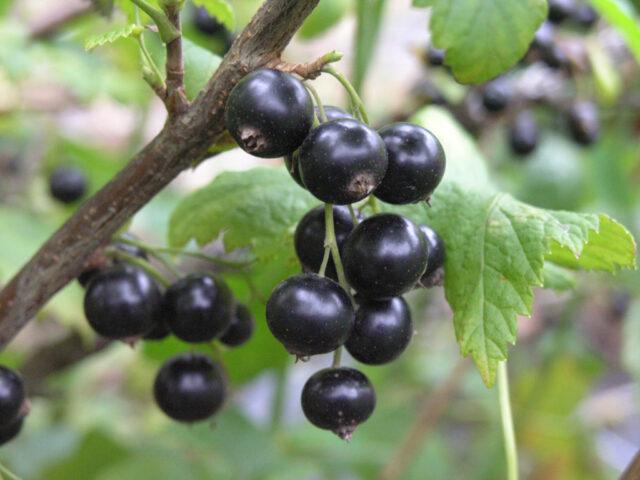
In addition to taste, black currant berries are distinguished by a high content of vitamins A, C, PP
Characteristics
The black currant Myth has acquired good taste and ripeness from the crossed maternal varieties Rita and Titania. In addition to these advantages, it has other features.
Drought tolerance, winter hardiness
Despite the fact that black currants are moisture-loving, the Myth variety easily tolerates temporary drought, the berries do not crumble during this period. This feature is explained by the powerful root system that can provide the plant with moisture.
Winter hardiness of currants The myth is high, freezing of bushes in central Russia occurs in case of abnormal frosts and sudden temperature deviations. Kidney damage from recurrent frost is extremely rare.
Pollination, flowering period and ripening times
Currant The myth is self-fertile. It is not necessary for her to have pollinating varieties, but it is desirable to plant several bushes on the site, thanks to which the pollen carried by the wind increases the yield. The variety is mid-season. Flowering begins in May, the ripening stage occurs in late June - early July. Dates vary depending on the weather conditions of a particular year.
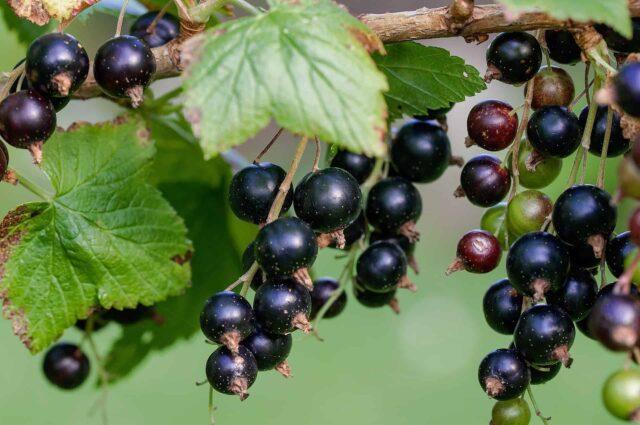
Each bunch of currants has eight to ten ovaries
Productivity and fruiting, keeping quality of berries
Productivity per bush - 2.7 kg. When grown on an industrial scale - 59.2 c / ha. The collection lasts about two weeks and ends in August. The full ripeness of the berries can be judged by the rich black color, juiciness and sweet and sour taste.The harvest of currants of the Myth variety is harvested in several stages, as it ripens. You should choose a dry warm day for work and remove the berries from the bush along with the stalk. In this form, they can be stored and transported longer without loss of quality. No more than 3 kg is placed in each container.
The currant bush of the Myth variety is erect, therefore it is suitable for both manual collection and a mechanized method. The berries do not bake in the sun, they crumble after they are completely overripe. Keeping quality is average. In the refrigerator, fresh can be stored for up to two weeks, provided that it is packed in small containers in a thin layer.
Disease and pest resistance
The authors of the Myth variety note that it is rarely affected by diseases and pests. Although currants are highly resistant to pathologies and have strong immunity, low temperatures, prolonged rains and other unfavorable conditions can lead to the spread of fungal and viral infections:
- Powdery mildew - spreads from diseased plants to healthy ones, manifests itself in the form of a white bloom on stems, leaves and berries.
- Terry - a viral disease leading to complete sterility of the bushes.
- Glass rust - appears as yellow spots on the back of the foliage.
- Septoria - a fungal disease in which the foliage turns yellow and the yield decreases.
Among insects, the kidney mite brings the greatest harm to the plant.
Advantages and disadvantages
Currant berries are high in fiber and low in sugar, so they are suitable for those who want to lose weight. Bushes of the Myth variety are resistant to most diseases.
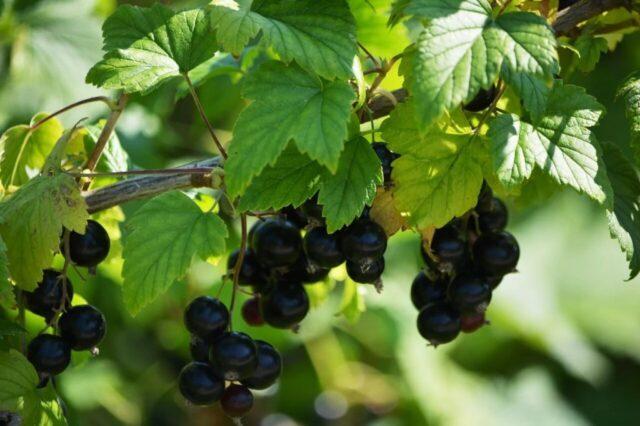
The berries contain natural antioxidants that protect against aging and cancer
Pros:
- compactness of the bush;
- ease of maintenance and harvesting;
- winter hardiness;
- drought resistance;
- self-fertility;
- high productivity;
- good taste of berries;
- the possibility of their transportation;
- versatility of use.
There are not so many disadvantages of the Myth variety. These include:
- variety of berries;
- short shelf life fresh.
Features of planting and care
The optimal time for planting black currants of the Mif variety in central Russia is the second decade of October or mid-April. The kidneys should be at rest at this moment. The plant loves moist soil, but does not tolerate stagnant water and waterlogged soil. The planting site should be well lit by the sun, but location in light partial shade near fruit trees is permissible. Normal soil acidity for currants is 4-5.5 pH.
The earth is dug to the depth of a bayonet and organic fertilizers, superphosphate and potassium sulfate are introduced into it.
Plants are planted according to the algorithm:
- Dig holes with a width and depth of 0.6 m.
- Drainage from fine gravel is laid on the bottom.
- Pour a mixture of humus (5 kg), wood ash (one glass) and superphosphate (100 g) on the bottom.
- Sprinkle soil on top.
- Set the seedling in the center.
- The pit and voids are covered with earth and lightly tamped.
- Mulch the soil under the seedling with peat.
Important! When planting currants of the Myth variety in autumn, it is necessary to huddle its base high before the onset of winter cold.
Further care consists of watering, periodic feeding, pruning and preparation for winter.
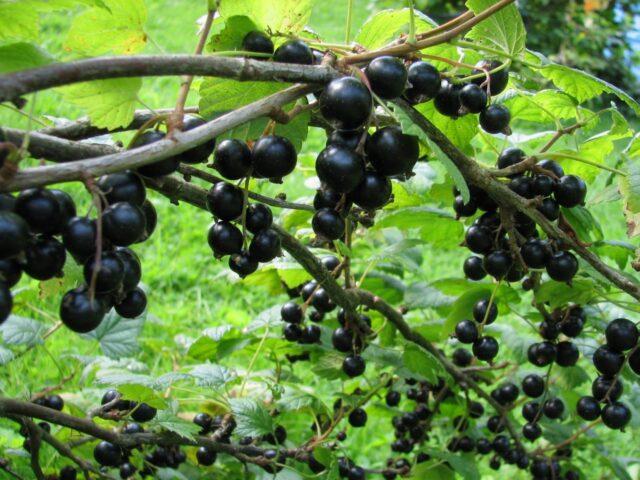
For planting, seedlings with a well-developed root system and no signs of diseases are chosen.
Watering and feeding
At first after planting, currant bushes need to be watered often. Moistening is carried out with sprinkler irrigation or from a watering can late in the evening so that young foliage does not get burned. Fertilizers are applied in the second year after planting twice a season - nitrogen fertilizers in spring, and phosphorus fertilizers in autumn.
Pruning
The currant bushes of the Myth variety are very compact, erect, not prone to lodging, so the plant does not need to be tied up. The first pruning is carried out immediately after planting, shortening the shoots by half.The next spring, damaged, twisted and dry branches are removed, and later - old ones, which are more than five years old.
Preparing for winter
The currant of the Myth variety is frost-resistant, therefore it does not need shelter for the winter. As a preparation for frost, you should remove fallen leaves, water the bushes abundantly and mulch the tree trunks.
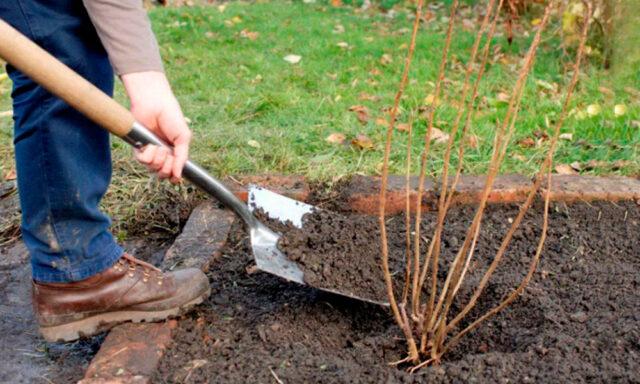
The root collar is deepened by 5-6 cm
Conclusion
Currant Myth is an excellent variety for planting not only in the central regions of Russia, but also in more northern and southern regions. It winters well, gives annual harvests of good quality berries. By planting a few bushes, you can provide seven vitamins for the whole year.
